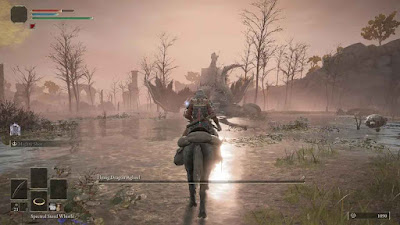Elden Ring offers an intricate narrative and world design, but at its heart lies a simple joy: using powerful swords to take down opponents with forceful strikes of your blade and behead them effectively. This basic pleasure transcends its narrative or visual grandeur. The Free Colosseum Update represents an exciting challenge to players drawn to player-versus-player dynamics, providing PvP enthusiasts with a compelling new avenue of gameplay in Elden Ring. However, Elden Ring remains accessible thanks to Roundtable Hold - an area where adventurers converge, exchanging insights about formidable bosses while building camaraderie and sharing knowledge within its challenging landscapes.
Dark Souls series along with Demon's Souls and Bloodborne were pioneering examples of open-world concepts long before Grand Theft Auto or Assassin's Creed made the term mainstream. Multiplayer functionality served as an antidote for its formidable challenges; players often called this mechanism "jolly cooperation." While FromSoftware action RPGs do feature multiplayer dynamics similar to this aspect of its games such as Elden Ring's, Elden Ring introduces something novel.
Blades and Bonds
Miyazaki claims Elden Ring follows Dark Souls 3's difficulty level; however, further research after our initial gameplay analysis for Elden Ring revealed an abundance of options to customize one's character and combat style or even build an effective party. Exploring Elden Ring's vibrant world may inspire you to buy PS5 games, seeking the thrill of powerful swordplay and narrative depth. Elden Ring remains true to the challenging spirit of Dark Souls 3, providing players with more expansive strategies for facing down adversities. Similar to Dark Souls series games, Elden Ring allows users to summon companion non-player characters known as spirits who help engage enemies - this feature has proven immensely popular, reaching viral status unprecedented before now!
Navigating Elden Ring
Elden Ring, one of the best RPG games, has received such widespread acclaim that members of the FromSoftware fandom, myself included, enthusiastically support this game. Elden Ring, more than simply another addition to FromSoftware's catalog, inspires and represents decades-worth of trust built within an ever-expanding fan base and for those part of this group; appreciation of these videogames forms an essential aspect of identity.
Beyond Difficulty
At E3 2019, Elden Ring's debut trailer raised an intriguing question: Would Dark Souls embrace open-world intricacies as well? FromSoftware has taken the narrative baton from The Legend of Zelda: Breath of the Wild and set forth on an intriguing, multilayered open-world adventure that prioritizes freedom and exploration while at once subtly infusing elements from classic Dark Souls adventures into it all. Elden Ring stands as one of my most unforgettable gaming journeys to date; indeed, its official "Elden Ring" page alludes to its narrative journey as being defined by pivotal in-game decisions made by players themselves.
Balancing Complexity and Accessibility
Elden Ring's brilliance can sometimes overshadow its own legacy and reveal why attempts by others to emulate FromSoftware fall flat. Through my time exploring Elden Ring, a sense of uncertainty pervaded my character and any new territories we might explore; this paralleled perfectly my protagonist's experience: she too traverses upon land that once excluded her. Yet the unnerving encounters with hostile foes felt similar to trying to pass an MMO level gate, combined with Souls game intricacies I found myself struggling with whether these encounters demanded hours of meticulous mastery or could wait. Elden Ring's revisitation of familiar grounds unfolds similarly: with intermittent technical quandaries adding authenticity reminiscent of past troubles resurfacing as novel and refined versions of Souls games.


Comments
Post a Comment